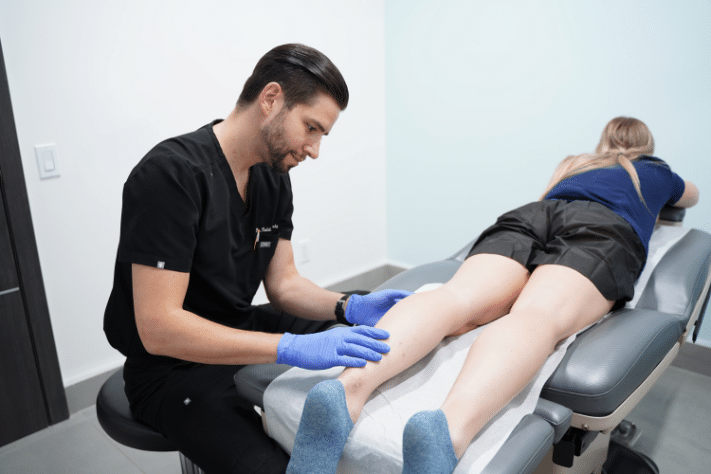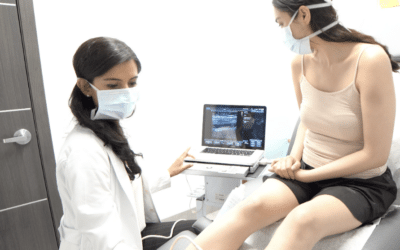Advantage of Consulting a Vascular Doctor: When to See One for Varicose Vein Treatment?
Varicose veins are more than just a cosmetic concern; they can indicate underlying circulatory issues that may require attention. Recognizing when it’s time to consult a When to see a Vascular Doctor is essential for both treatment and prevention of further complications. This article explores the advantages of seeing a vascular specialist, how varicose vein treatment works, and why addressing vein health early can benefit your overall health.
Understanding Varicose Veins: What Are They and Why Do They Occur?
Varicose veins are enlarged, twisted veins that usually appear on the legs and feet. They develop when the valves in the veins don’t function correctly, leading to blood pooling and increased pressure. This causes the veins to bulge and become visible on the skin's surface. Common causes of varicose veins include aging, pregnancy, obesity, genetics, and prolonged standing or sitting.
While varicose veins can be harmless in some cases, they often cause discomfort, aching, and a sense of heaviness in the legs. Ignoring these symptoms can lead to more serious complications, which is why timely medical attention is crucial.

When to See a Vascular Doctor: Key Signs and Symptoms
Identifying when to consult a vascular doctor can help in managing varicose veins before they escalate. Here are some indicators that suggest it’s time to seek professional care:
· Persistent Pain and Discomfort: If your varicose veins cause regular pain or aching, it may indicate that the veins are worsening. A vascular doctor can assess the severity and recommend treatment options to relieve discomfort.
· Swelling in the Legs: Unusual swelling in the legs or ankles could be a sign that varicose veins are affecting circulation. This symptom is often accompanied by a feeling of heaviness or tightness in the affected area.
· Skin Changes Around the Veins: When varicose veins start affecting the skin, you may notice discoloration, dryness, or itchiness around the area. Over time, the skin may become thinner and more prone to injury. Consulting a vascular doctor can prevent potential skin complications.
· Open Sores or Ulcers: Ulcers near varicose veins are a serious symptom that requires immediate medical intervention. These open sores can lead to infection and other complications, making prompt treatment essential.
· Blood Clots or Thrombophlebitis: In some cases, varicose veins can lead to blood clots, a condition known as thrombophlebitis. This is a medical emergency, as it increases the risk of deep vein thrombosis (DVT), a potentially life-threatening complication.

The Advantage of Early Varicose Vein Treatment
Seeking treatment early offers several advantages. Not only can it alleviate symptoms, but it can also prevent potential health issues related to varicose veins. Some of the benefits of early intervention include:
· Improved Circulation: Varicose vein treatment helps restore healthy blood flow, reducing the likelihood of swelling, blood clots, and other complications. Enhanced circulation also reduces pain and discomfort.
· Reduced Risk of Skin Damage: Early treatment helps prevent skin complications like discoloration, dryness, and ulceration. Preserving skin integrity is essential for avoiding infections and long-term skin changes.
· Minimized Pain and Discomfort: With effective treatment, you can eliminate the discomfort associated with varicose veins. Procedures like sclerotherapy or laser treatment are often quick and can provide lasting relief from symptoms.
· Better Quality of Life: Untreated varicose veins can hinder physical activities and lead to low energy levels. By seeking treatment, you can improve your quality of life and maintain an active lifestyle.
Does Varicose Vein Treatment Work? Exploring Treatment Options
Varicose vein treatment has come a long way, and several effective options are available. Consulting a vascular doctor ensures you receive the most suitable treatment for your condition. Here are some of the primary methods used to treat varicose veins:
1. Sclerotherapy
Sclerotherapy is a minimally invasive procedure in which a solution is injected into the affected veins, causing them to collapse and fade over time. This treatment is particularly effective for smaller veins and spider veins. Many patients find sclerotherapy to be effective and minimally disruptive, with results often visible in a few weeks.
2. Endovenous Laser Therapy (EVLT)
EVLT uses laser energy to seal off varicose veins from the inside, preventing further blood flow. This outpatient procedure is highly effective for larger varicose veins and requires minimal recovery time. EVLT has gained popularity because of its precision and the rapid relief it provides.
3. Radiofrequency Ablation (RFA)
Similar to EVLT, radiofrequency ablation uses heat to close off varicose veins. A catheter is inserted into the vein, and heat is applied to collapse the vein walls. This procedure is highly effective, and like EVLT, it’s performed on an outpatient basis.
4. Ambulatory Phlebectomy
For more prominent veins near the skin’s surface, a vascular doctor may recommend ambulatory phlebectomy. This procedure involves making small incisions to remove the affected veins. Although it’s a surgical procedure, it’s minimally invasive, and patients can often resume normal activities within a day or two.
5. Compression Therapy
Compression therapy involves wearing specially designed stockings that apply pressure to the legs, helping improve blood flow. While compression stockings are not a permanent solution, they effectively manage symptoms and are often recommended as part of a comprehensive treatment plan.
Advantages of Consulting a Vascular Doctor for Personalized Treatment
When it comes to treating varicose veins, consulting a vascular doctor ensures you receive a treatment plan tailored to your unique needs. A vascular specialist understands the complexities of vein conditions and can recommend the most effective, least invasive options. Here are some reasons why consulting a vascular doctor is advantageous:
· Expert Diagnosis and Assessment: Vascular doctors use diagnostic tools, such as ultrasound imaging, to determine the severity of your varicose veins. This allows them to create a targeted treatment plan, ensuring optimal results.
· Personalized Treatment Options: A vascular doctor considers your medical history, lifestyle, and specific symptoms when recommending treatment. This personalized approach maximizes treatment effectiveness and minimizes the risk of recurrence.
· Comprehensive Care: A vascular doctor not only treats the symptoms but also addresses underlying issues to prevent future problems. They may suggest lifestyle changes, preventive measures, and follow-up care to ensure long-term vein health.
· Access to the Latest Treatments: Vascular doctors are typically trained in the latest techniques and technologies, providing you with the most advanced treatment options. Procedures such as EVLT and RFA are often only available through specialists.
Maintaining Vein Health After Treatment: Tips for Preventing Recurrence
After how much does varicose vein treatment cost, it’s important to maintain healthy habits to prevent recurrence. Your vascular doctor will likely provide specific guidance, but some general tips include:
· Exercise Regularly: Physical activity, especially exercises that engage your legs, promotes blood flow and reduces the risk of vein issues.
· Elevate Your Legs: Elevating your legs above your heart level helps reduce swelling and promotes circulation, especially if you’ve been standing or sitting for extended periods.
· Wear Compression Stockings: Compression stockings are especially beneficial for those who stand for long periods or have a family history of vein issues.
· Maintain a Healthy Weight: Excess weight adds pressure to the veins in your legs. A balanced diet and regular exercise can help you maintain a healthy weight, reducing stress on your veins.
Conclusion:
Understanding the advantage of consulting a vascular doctor when dealing with varicose veins can have a lasting impact on your vein health and quality of life. Early consultation allows you to address symptoms before they escalate, while effective treatments like sclerotherapy, EVLT, and RFA provide relief and improved circulation. Whether you’re experiencing pain, swelling, or other symptoms, seeking professional advice ensures you receive the most appropriate care. With the right treatment and preventive measures, you can manage and potentially eliminate varicose veins, helping you lead a healthier and more active life.
Comments
Post a Comment